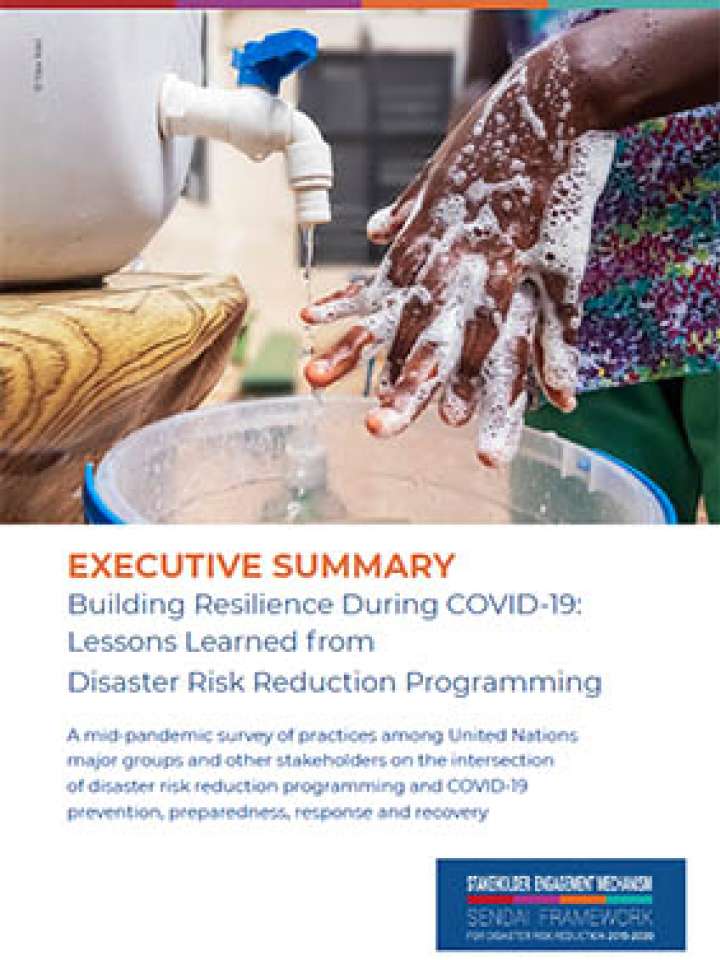Building resilience during COVID-19: lessons learned from Disaster Risk Reduction programming
The COVID-19 pandemic is a stark demonstration that, in a connected and globalized world, risk is more systemic than ever: what was initially a health disaster quickly became a socioeconomic one with long-term impact, highlighting the urgent need for a whole-of-society approach towards prevention and risk-informed recovery and development.This report presents the results of a 2020 survey and literature review conducted by the Stakeholder Engagement Mechanism of the United Nations Office for Disaster Risk Reduction (UNDRR). It features lessons learned and insights on how disaster risk reduction stakeholders around the world have leveraged existing disaster risk reduction programmes and initiated new ones to better prevent, prepare, respond to and recover from COVID-19 and future pandemics. The survey was rolled out mid-pandemic and, therefore, most examples focused on how disaster risk reduction helped immediate pandemic response, preparedness and recovery, rather than long-term prevention and mitigation.
Four key insights, in particular, emerged from this report namely:
- Insight 1: Insufficient focus on pandemic prevention and preparedness
- Insight 2: Civil society organizations adapted swiftly during the pandemic by leveraging existing local disaster risk reduction networks and programmes
- Insight 3:Significant challenges need to be overcome for enhanced disaster risk reduction and resilience
- Insight 4: Systemic risk requires systemic solutions
